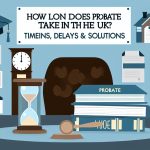Table of Contents

Death bed gifts, also known as gifts in contemplation of death, are gifts made by a person who believes they are approaching death and wishes to transfer their property or assets to someone else before their passing. These gifts are made with the expectation that they will only take effect upon the donor’s death.
The specialist team at Swansea Legal Solutions would like share details of the benefits and pitfall of death bed gifts so you can make informed decisions if this is a path you wish to follow now or in the future.
Death Bed Gifts
The donor must have a genuine belief that they are facing imminent death at the time the gift is made. The gift is made in contemplation of death, with the expectation that it will be valid and take effect only upon the donor’s demise. Unlike other forms of gifts, death bed gifts are typically revocable, meaning the donor retains the right to revoke or change the gift at any time before their death. If the donor recovers from the illness or changes their mind, they can reclaim the gifted asset(s).
For a death bed gift to be valid, the donor must physically transfer the property or assets to the recipient or someone acting on their behalf. It is not sufficient to simply express an intention to gift the property without a corresponding transfer.
The donor may impose conditions or limitations on the gift, specifying how the property should be used or distributed after their death. These conditions should be clearly communicated and understood by both the donor and the recipient.
Benefits of Death Bed Gifts
Death bed gifts allow individuals facing imminent death to express their final wishes and intentions regarding the distribution of their assets or property. It provides them with an opportunity to make specific bequests to loved ones or charities, ensuring their desires are known and potentially fulfilled.
These gifts can be relatively simple to execute compared to formal estate planning methods such as wills or trusts. They do not require legal documentation, probate, or the involvement of legal professionals. This simplicity provides flexibility, especially in urgent or time-sensitive situations.
Unlike assets that may be distributed through probate or other legal processes after death, death bed gifts can result in an immediate transfer of property to the intended recipient. This can be beneficial when there is a pressing need or urgency, ensuring the recipient has access to the gifted property sooner.
Death bed gifts may bypass the probate process, which can be time-consuming and costly. By transferring assets before death, the gifted property may not be subject to probate administration, potentially saving time and expenses for the estate.
Death bed gifts can hold significant emotional value for both the donor and recipient. They can serve as a meaningful gesture or act of love, allowing the donor to express their affection, gratitude, or support to a specific individual or organization during their final moments.
Pitfalls of Death Bed Gifts
Death bed gifts are typically revocable, meaning the donor can revoke or change the gift at any time before their death. This can create uncertainty and potential conflicts if the donor changes their mind, leading to disputes among beneficiaries or confusion about the intended distribution.
These gifts do not involve formal legal documentation or witnesses, which can create difficulties in proving the validity of the gift. Without proper documentation, it may be challenging to establish the donor’s intent, delivery of the gift, or the conditions attached to it. This can lead to disputes and potential legal challenges.
Relying solely on death bed gifts may result in incomplete estate planning. It is important to consider other estate planning tools, such as wills, trusts, and powers of attorney, to ensure comprehensive and legally valid arrangements for the management and distribution of assets during life and after death.
Death bed gifts may not necessarily bypass the probate process. Depending on the legalities and the nature of the assets, the gifted property may still need to go through probate, resulting in delays and additional expenses.
If death bed gifts are made without proper planning and consideration, they may lead to unequal treatment among beneficiaries. In the absence of clear instructions and comprehensive estate planning, some beneficiaries may receive significant gifts while others receive nothing or less than anticipated. This can strain family relationships and potentially result in legal disputes.
Swansea Legal Solutions
Given these pitfalls, it is advisable to consult with a qualified legal professional, like the team at Swansea Legal Solutions, to explore comprehensive estate planning options and ensure the proper distribution of assets according to your wishes. This may involve creating legally valid wills, trusts, or other estate planning instruments that provide a more structured and reliable framework for asset distribution and minimize the potential for disputes.
Call us today on 01792 420844 to discuss your specific requirements and to book an appointment with a member of our specialist team.







Leave a Reply
You must be logged in to post a comment.